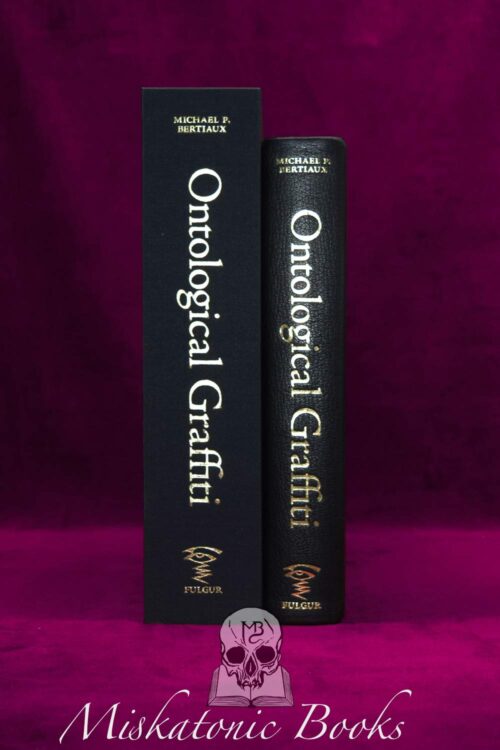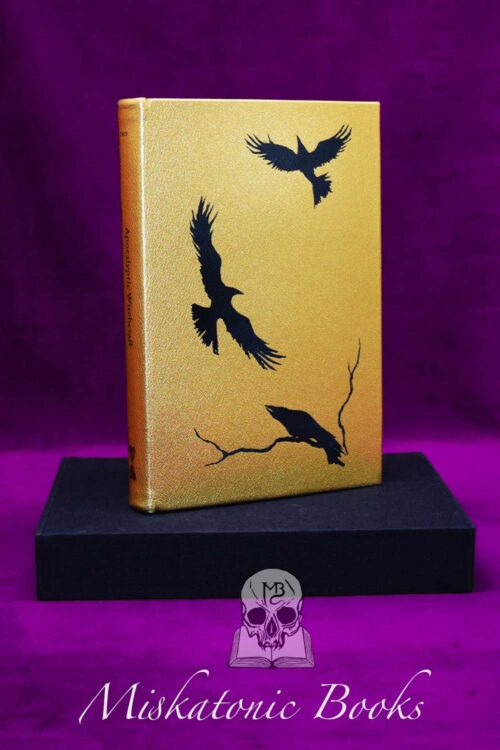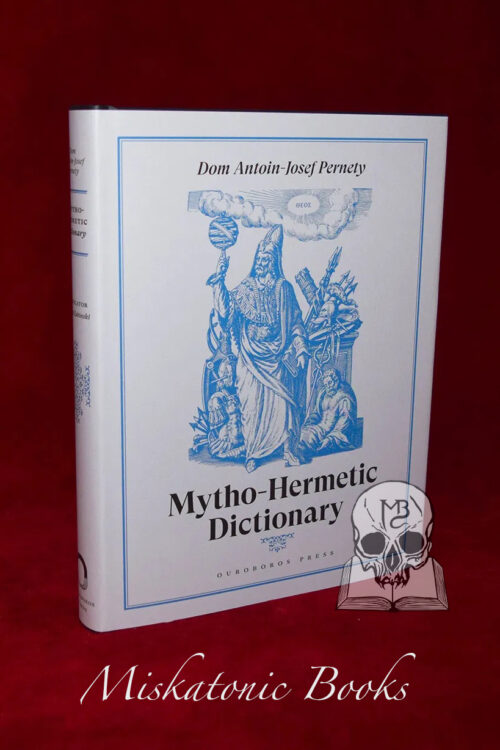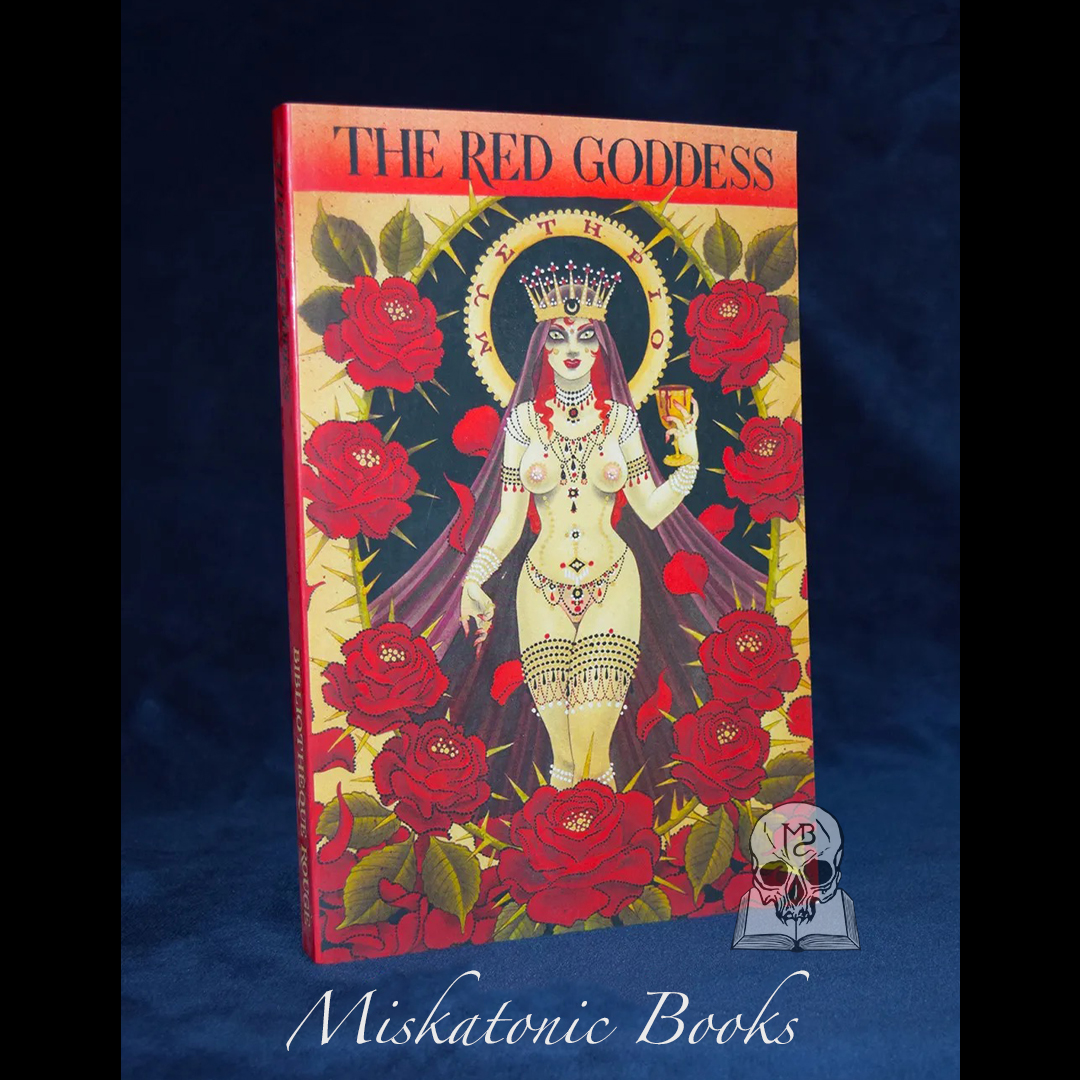
$250.00
THE SCENTED GARDEN OF ABDULLAH THE SATIRIST OF SHIRAZ by Aleister Crowley – First Edition Hardcover
Out of stock
The Teitan Press, 1991. A Fine, Unread copy, without any marks or smudges to white paper boards. First Facsimile Edition. Hard Cover, Cloth Spine, Sewn. Fine/No Jacket, As Issued. 8vo – over 7¾” – 9¾” tall
Publisher: The Teitan Press
Publication Date: 1991
Binding: Hardcover
Book Condition: Fine
Edition: 1st Edition
Synopsis:
One of Crowley’s rarest works: part homo-erotic parody, and part mystical text. As described in Crowley scholar Martin P. Starr’s Introduction to the 1991 facsimile edition, there were only 200 copies of the book printed, but many of these were destroyed in a customs seizure not long after publication, so that even before the beginning of the First World War Crowley was speaking of its rarity. A second customs seizure (1924) depleted the number of surviving copies yet further, and it is consequently one of Crowley’s rarest works.
Excerpt. © Reprinted by permission. All rights reserved.:
The Scented Garden of Abdullah the Satirist of Shiraz, often referred to by its pseudonym-prone author, Aleister Crowley, under its Persian title of Bagh-i-Muattar (abbreviated for the sake of further concealment as “B-i-M”), is among the rarest of Crowley’s first editions. Rarer still is the reader who sees anything but a huge obscene jest in the book, despite the fact that its author unhesitatingly asserted that “mystically it transcends the Bhagavat Gita and the Tao Teh King,” two books he admired greatly. His esteem for Captain Sir Richard Francis Burton, pioneer translator of Arabic and Hindu erotica and inventor of his own Sufi poet, “Hâji Abdû El-Yezdî,” unquestionably led Crowley to imitation of Burton’s work, but this book is more than a recapitulation in verse of the author’s philosophy. In addition to all the Eastern lore, occultism and facetiae with which the text is loaded, a close reading of The Scented Garden of Abdullah gives one access to part o! f the author’s psyche that could only find expression under a series of veils, penetrable solely by those of empathic interests or personal acquaintance. As it is so much a hidden and a closed book, a few words are in order to introduce this first facsimile edition.
With so intimate a work, one cannot divorce the creator from his creation. Throughout his life Crowley was bisexual in thought and less so in practice. Owing to contemporary law and mores, the homosexual side of his nature could only be expressed in public demurely, and published anonymously or pseudonymously. But in his Confessions, which were written for publication, Crowley quietly divulges his first and deepest homosexual union. It began in his third year at Cambridge in early December 1897 with his meeting Jerome Pollitt, in the rooms of the President of the Cambridge Footlights Dramatic Club, in which Pollitt danced. Although Pollitt performed as a female impersonator, Crowley noted that he was in no way androgynous; he described Pollitt as looking “rather plain than otherwise. His face was made tragic by the terrible hunger of the eyes and the bitter sadness of the mouth. He possessed one physical beauty–his hair. This was very plentiful and he wore it rather long….! ! But its colour was pale gold, like spring sunshine, and its texture of the finest gossamer.” Crowley stated that his friendship with Pollitt was “the ideal intimacy which the Greeks considered the greatest glory of manhood and the most precious prize of life. It says much for the moral state of England that such ideas are connected in the minds of practically every one with physical passion.”
But connected they were. In his wildly humorous roman à clef Not the Life and Adventures of Sir Roger Bloxam, Crowley, through the character of “Porphyria Poppoea”–who represents Crowley’s anus–tells of his love for “Hippolytus,” obviously Pollitt to all those who knew Crowley’s life and perfectly oblique to the rest. Crowley played the receptive part in their intercourse, being as he was “strongly male to women; free from any similar impulse toward my own sex.”
The dissimulation is evident: the passage in the Confessions quoted above is immediately followed by a description of Crowley’s satisfaction with his heterosexual activities, attempting to give the lie to the obvious construction one could put on his intimate friendship with Pollitt. Even writing many years later, Crowley still so idealized their relations by stressing their sanctity and purity to the point of excluding (at least for general circulation) any recognition of their physical element. Like his pseudonym the Rev. P.D. Carey, Crowley maintained that male homosexual intercourse was a spiritual and not a physical pleasure.
Although Pollitt shared none of Crowley’s interests, he did introduce his younger friend to the Decadents in art and literature and generally made a poet out of the boy Crowley. They broke off their relationship in 1898 after Crowley found Pollitt’s profound spiritual despair at odds with his religious aspirations. But Crowley never forgot Pollitt and the inspiration their liaison gave him, for “seven times the Father of all Light whirled Earth about him through the Zodiac–and she knew surely that he was her true lover for all time and for all eternity. So, weeping, she caused a great monument to be set up, with an inscription in the Persian language.”
The monument was The Scented Garden of Abdullah….
Although various plans were subsequently mooted for republication, the book remained rare and virtually unobtainable. Unlike his other erotica, Crowley felt on safe enough grounds that he included it in the bibliography of his works in the Mandrake Press prospectus for the Confessions; Mandrake went bankrupt after publishing only the first two volumes and the section discussing The Scented Garden of Abdullah was not published until 1969. There are very few copies in institutional collections and fewer still offered for sale; it is hoped that this facsimile edition will make this major writing on “the orgia of the Holy Spirit of Man” easily available to the ever-increasing circle of Crowleyan cognoscenti. Throughout the body of Crowley’s work he quotes from it or refers to it countless times, a sure sign of its importance; he goes further still and refers to Abdullah Haji Shirazi as a saint, comparable to Ignatius Loyola and Francis of Assisi, a sign of the religious intentio! n of this book which is so often missed.
The present facsimile is reproduced from a copy in a private collection. I would like to thank R. Williams for his generous assistance with the design and production.
Martin P. Starr




Miskatonic Books | P.O. Box 204, Laurel MT 59044, United States
Reviews
There are no reviews yet